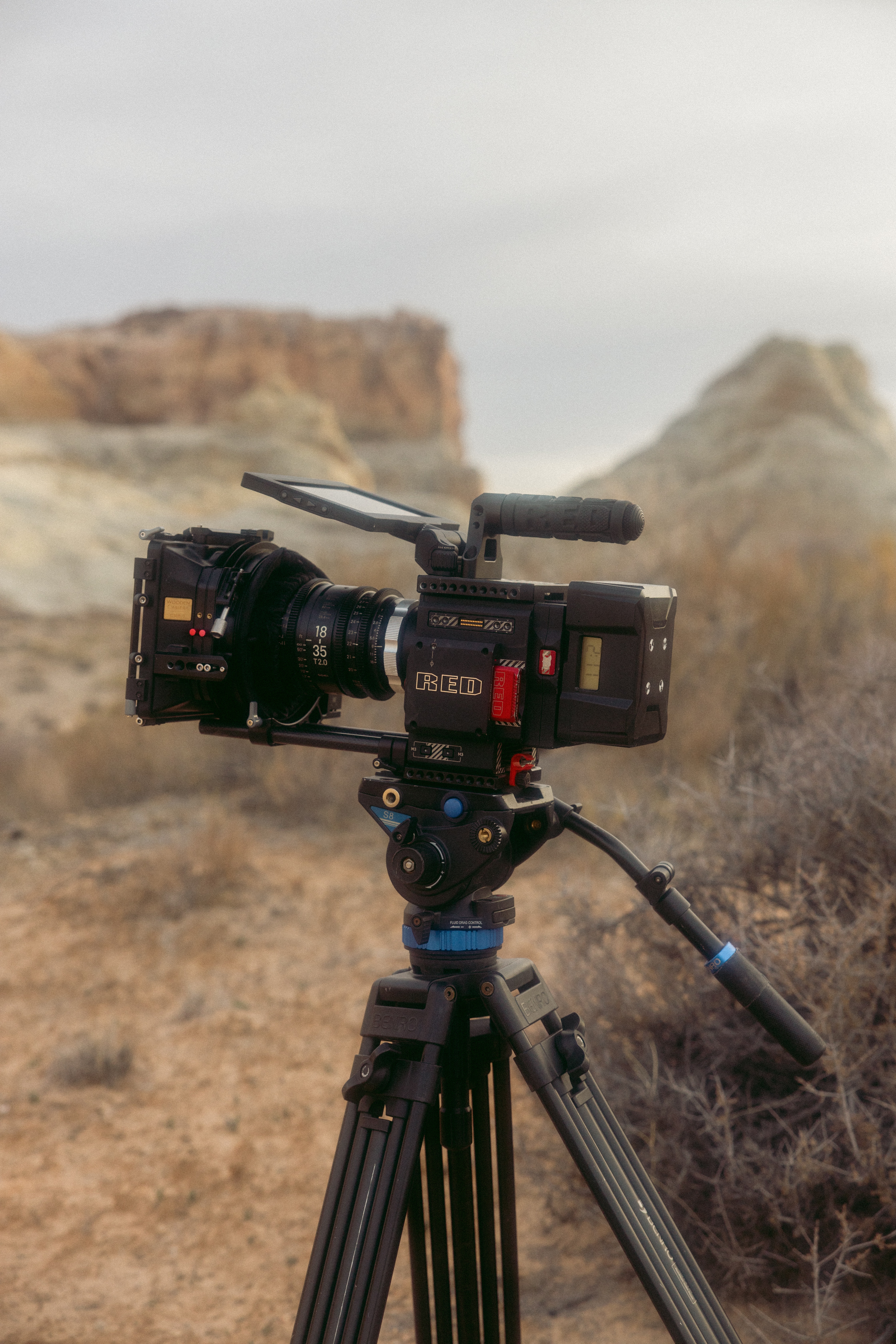As a film or TV freelancer, you’re reliant on your equipment to trade. Should something happen to it, it can stop you from working – disrupting your business and even impacting your reputation within the industry.
At RiskBox, we regularly work with film and TV professionals to get their insurance right and, in the event of a claim, support them and get them back working as quickly as possible.
If you’re considering protecting the assets most valuable to your livelihood, this guide is for you. We appreciate that Production Equipment insurance can be complicated, so we’ve covered all the basics here.
What is Production Equipment insurance?
As a rule, Equipment insurance is there to get you back into the position you were in prior to a loss – such as accidental damage, theft or fire. The insurance isn’t designed to cover your equipment against wear and tear, cyber losses, terrorism (although you can extend your policy to include this), or war.
Given the complexities within the industry and the variety of insurers offering different products, we’ve tried to break down some of the key considerations, terms and clauses below that might help you to understand your insurance a little better.
What should I look for in an Equipment insurance policy?
Policies will vary across insurers, but for the main policy, you want ‘all-risks’ coverage. Here are some key extensions you’d want to see:
Loss of Hire
This covers you for the ‘loss of hire’ fees you would have received for hiring out your insured property under a standard hire contract. It begins at the date of the damage until the equipment is repaired or replaced. There’s usually a policy limit or time limit specific to the policy applied.
Alternative Hire Costs
Insurers would pay the (reasonable) hire costs incurred by you for the necessary hire of a substitute item as a direct result of damage covered under the policy. The substitute item must be of a similar type and capacity, and again it begins at the date of the damage until the insured property is repaired or replaced. Likewise, there’s usually a policy limit or time limit specific to the policy applied.
Continuing Hire Charges
This covers your continuing hire charges for property hired in whilst that property is being repaired or permanently replaced. It is usually contingent on you having a written agreement that you’re responsible for the costs and your insurers having admitted liability for such damage.
While these are the standard extensions you’d expect to see, others could also be included – such as Equipment and Mechanical Breakdown, and Re-Shoot and Recompilation Costs.
You should note that it’s important to carefully check the requirements of the equipment rental firm you’ve used as they may have specific conditions required under your insurance.
What considerations do I need to be aware of?
Each insurer is different and will have different requirements under their policies or exclusions applied that you need to be mindful of. Some examples are:
Limit Per Vehicle
Vehicle thefts remain common, and sometimes insurers look to sub-limit the coverage allowed under the policy. The more comprehensive packages won’t include restrictions here.
Unattended Vehicle Conditions
Again, as vehicle theft and theft from vehicles remains common, it’s important to pay close attention to the security requirements under the policy for coverage to remain in place. Where possible, we’d always recommend not leaving equipment in vehicles, particularly overnight. Policy requirements could include:
- Equipment being out of sight in a storage compartment, boot or trailer
- Full security in place and operational, including an active alarm
- Equipment being locked in a garage or secure compound
Cover in Hold (Aircraft)
Some insurers look to remove cover for equipment in the hold of an aircraft. It’s important to review this and consider your risk.
Average Conditions
If in the event of a claim you’re underinsured on your equipment, then the average condition will likely apply. Essentially, this means that if you have a total of £20,000 of equipment but you only insure £10,000 of equipment then any claim payment would be reduced by 50%. For example, if £8,000 of equipment was damaged or stolen then you would only get £4,000 paid out. It’s therefore important to regularly review your sums insured and update your insurers as required.
Fraudulent Hire Losses
Insurers want you to be careful with your equipment. You can be covered for theft by deception should you hire out your equipment, but this is on the basis you have done certain checks beforehand.
These could include:
- Verified trade references
- Utility bills for proof of address
- Copies of credit card details
- ID or photographs
- Collection controls
Does the location of the equipment matter?
Most insurers offer flexible levels of cover to suit your requirements. It’s important to remember the coverage basis and, should your requirements change, amend these with the insurer.
If certain equipment remains at the premises all the time, it’s cheaper to insure on an ‘At Premises Only’ basis. Remember, the sums insured would only be covered for losses at the specified location. You would have to comply with any security conditions that the insurer applies.
If your equipment is considered ‘Portable Equipment’, you’ll find that each insurer will offer standard geographical limits – whether that be UK only, UK and EU, or worldwide. Most insurers will typically offer the first two as standard, with the extension to worldwide significantly increasing the cost of the insurance.
What should I be aware of when hiring in equipment?
It’s common to hire in equipment from a third party and you can do this on your annual policy quite easily– whether you do it ad hoc or have a set limit on an annual basis.
However, most insurers want you to do the following when hiring in so that their coverage can apply:
- Complete and record an inventory check and inspect all hired-in property for damage prior to acceptance, and agree a schedule of any damage with the hire company.
- Only return the property to persons authorised within the hire company to accept it.
Another thing to be aware of is that insurers differ in terms of sums insured. Some will have a separate limit for hired-in equipment which needs to be advised, whereas others may group the equipment in with your owned property. It’s therefore important to differentiate and ensure your sums insured are adequate to include both owned and hired-in equipment.
What about hiring out equipment?
There are two common types of hiring equipment that you own or are responsible for to another party, whether that’s another freelancer, a production company, or even a friend:
Dry Hire
This is a simple form of hire where the hirer hires the equipment only.
Wet Hire
This is similar to the above, but the equipment comes with the operator.
It’s crucial that you consider the terms and conditions carefully in order to establish who has an insurable interest in the property (the right to claim) and who is responsible for insuring the equipment during that period. Policies will vary considerably and will have certain conditions that you need to comply with depending on your situation.
The ideal situation is that whilst the equipment is in your care, custody and control, you should be responsible for insuring it (unless it’s wet hired on a production). If you are hiring equipment out (including wet hire), then it’s important you have industry-standard terms and conditions in place that include reference to insurance. You should make the hirer responsible for insuring the equipment whilst hired out and indemnifying you in the event of a loss. Ideally you would also have a copy of their insurance documentation should they make a claim. Your policy should then be contingent on their insurance failing to respond.
How can RiskBox help?
We’ve helped countless individuals and businesses in the film and TV production sector get their insurance right. Each time a client has made a claim, we’ve been there to support them every step of the way – and we can do the same for you.
If you’d like to discuss your insurance requirements and find out more about how we work, call us today on 0161 533 0411 or email info@riskboxuk.com.
Photo by Jakob Owens on Unsplash




